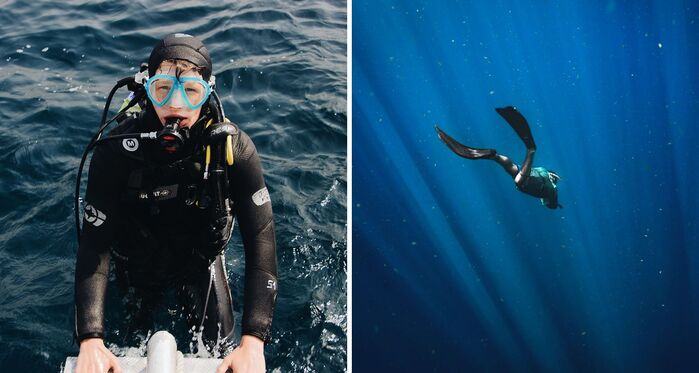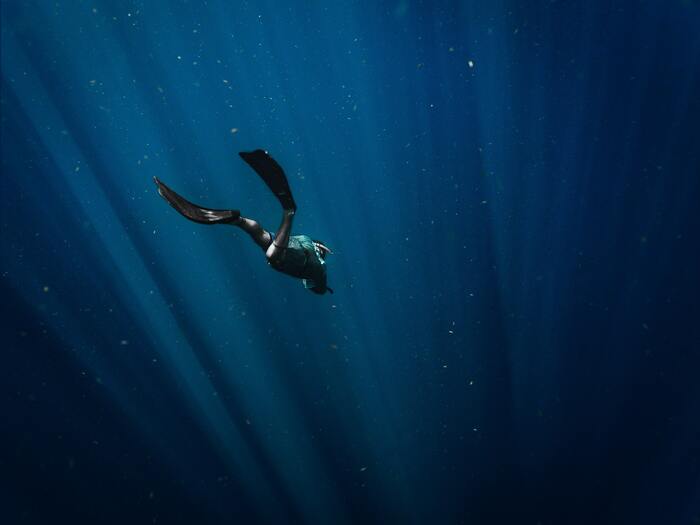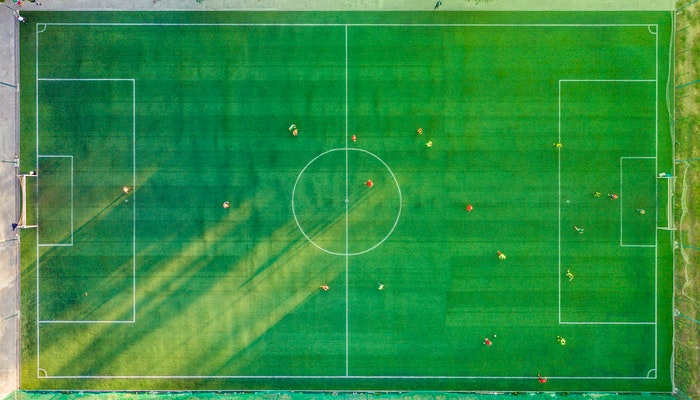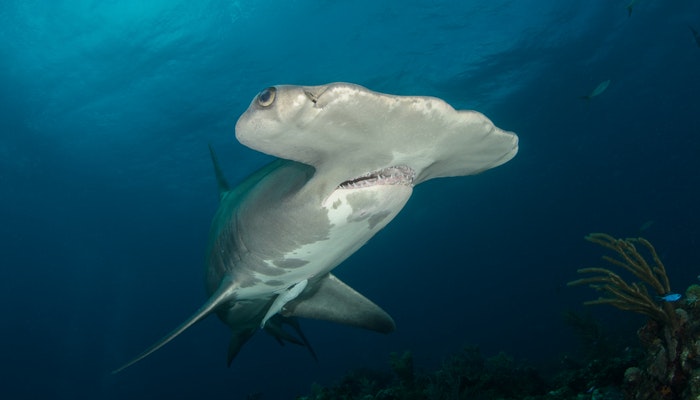So, how deep can you scuba dive? It’s a pretty common question that people ask scuba divers. And, the answer depends…somewhat. There are quite a few physical, physiological, and personal considerations to account for when answering this question.
This post may contain affiliate links. Please see our disclosure.

How Deep Can You Scuba Dive?
The basic maximum depth limits are:
- 60 feet – recreational dive limit for divers with PADI Open Water certification
- 100 feet – recommended recreational diving limit for PADI divers
- 130 feet – recreational dive limit for divers with PADI Advanced Open Water certification (roughly the size of two bowling lanes)

Recreational divers
The industry-standard depth limit for a recreational dive is 130 feet (40 meter). However, anything over 60 feet will require an advanced certification.
During your Advanced Open Water course, you will be trained under the supervision of a dive instructor to dive to a depth of 100 feet.
“Going deep” isn’t really necessary for a majority of great diving. Actually, a vast majority of marine life lives at depths less than 60 feet.
The 130 feet precedent can be traced to the US Navy. The rule was established in the 1950s and still requires special permission from a commanding officer for a diver to exceed this depth.
Technical divers
For technical diving, divers often go to a depth of 130 to 330 feet depending on the location. Technical divers are usually exploring deep wrecks or other structures.
Technical divers have much more training in terms of gas supply management, gas narcosis, gas toxicity, decompression stops, and more.
Commercial divers
Commercial diving is a completely different kind of diving. It can include offshore diving for oil, HAZMAT diving, salvaging, or construction.
Commercial divers usually go to a depth of around 600 feet.

What is the deepest scuba dive?
A team of commercial divers reached a depth of 1,752 feet in 1988 in order to connect an underwater pipeline.
In 2014, the deepest scuba dive was recorded at 1090.45 feet by Egyptian diver Ahmed Gabr and this holds the Guinness World Record for the deepest dive. It only took Ahmed about 12 minutes to reach the record depth, but it took him roughly 15 hours to return due to the risk of decompression sickness and nitrogen narcosis.
In 2005, Leigh Cunningham and Mark Andrews performed a dive to 676 feet at the Yolanda Wreck in Egypt. This is the world’s deepest wreck dive.
Herbert Nitsch, the “deepest man on Earth,” holds the record for the deepest free dive at 831 feet.
When to Deep Dive?
While you can have rewarding dives that aren’t deep, there are some circumstances where diving deeper may be something you find yourself wanting to do.
This may include wrecks that sit deeper than 60 feet or seeing specific marine life that is generally deeper than 60 feet. For example, some sharks tend to be in the deeper waters.

Some of the best deep dive sites are located in Egypt as well.
Deep Diving Risks
The deeper you dive, the more risk involved. The water pressure and the accumulation of compressed nitrogen begin to take a toll on your body the further you go. Some of the risks of deep diving include:
- Decompression Sickness
- Nitrogen Narcosis
- Rapid Air Consumption
- 9 Weird Things To Do In Dublin, Ireland - April 13, 2024
- 14 Weird Things To Do In Indianapolis, Indiana - April 13, 2024
- Bird Tourism: Getting Started - February 29, 2024




